It’s hard to believe the COVID-19 pandemic has been a fixture of everyday life since March 2020. While much of the U.S. has returned to some semblance of “normalcy,” highly infectious variants such as Delta threaten to curb back some of the newly-gained momentum, and a huge swath of the industry is concerned, according to new RISMedia survey results.
RISMedia surveyed nearly 500 real estate professionals to gauge the industry’s confidence level as it relates to the ongoing pandemic and emerging variants. While the majority of survey respondents (58%) say the pandemic is not currently affecting their business, a significant segment (42%) report otherwise.
View the full infographic of our proprietary data here or below.
Confidence levels in the industry have decreased amid rising concerns about COVID’s variant, Delta, which is more contagious than its predecessors and the cause of more than 80% of new U.S. COVID-19 cases, according to Yale Medicine.
Safety Protocols Still in Play
For survey respondent James Moore, a REALTOR® with HomeSmart in Arizona, there’s more at risk due to his own age and the age bracket of his typical client. According to the Centers for Disease Control (CDC), the risk for hospitalization from a COVID outbreak increases for people in their 50s to 80s, with those 85 and older most likely to get severely sick.
“As a senior working with seniors, we are the most vulnerable group if unvaccinated. We are less likely to allow open houses or showing,” says Moore, who takes several precautions when clients ask for live showings in homes he’s listed. These include:
- Asking them to read the “Guidance for Fair Housing Compliance During the COVID-19 Pandemic” from the National Association of REALTORS®
- Requesting that buyers and agents wear a face mask while on the property
- Having them wear booties and use the sanitation solution provided at the front door
- Requesting that the buyer agent note which items were touched in the house and wiping down those areas
Across the board, showings and open houses are the business areas most affected by COVID, as reported by 28% and 26% of respondents, respectively. Office environments (21%) and closings (13%) continue to see an impact as well.
As some regions revert back to indoor-mask wearing per new CDC guidelines, we may see a rise in business impact and a return to safety protocols. Many areas across the U.S. have continued implementing precautionary measures to help control the spread of the virus and keep both agents and consumers safe and comfortable.
Survey respondent Kay Marlin, broker with Chatel Real Estate in Washington D.C., and Northern Virginia, continues providing hand sanitizer at her listings, and her office has remained closed, with brokers and agents working virtually.
Many industry practitioners have followed a similar pattern, implementing a hybrid in-person and virtual strategy.
“I still provide sanitizer, gloves and masks if people feel more comfortable wearing them. Now we’re hearing that California is requiring all masks again, inside and outside,” says Nancy Davis, a REALTOR® with Keller Williams Consultants Realty in Ohio. “Most of us have been vaccinated but this variant is scaring people. People throughout our states are beginning to realize that a vaccination is good and will save lives. None of us want another close-down.”
More Shutdowns Ahead?
By far, another wide-spread closure is what respondents fear the most, with 58% believing that Delta or other strains could reintroduce shutdowns or restrictions.
“Our leaders worked hard to bring COVID under control and we have obtained a high vaccination rate allowing people to go about their business. Our buyers and sellers are comfortable with current CDC guidelines,” says James Harriff, a broker with RE/MAX Masters in New York. “The concern with the Delta strain is whether the tighter government restrictions on activity will be reimposed.”
Despite these fears, brokers and agents agree that another “shutdown” would not halt real estate completely as industry professionals are now better equipped to handle COVID-related restrictions. In fact, 55% of survey respondents say they are “very” prepared to keep business operating virtually, with only 39% “somewhat” confident they can do so and 6% “not at all ready.”
But being prepared comes at a cost. Anita Pulido, REALTOR® with RE/MAX Gold Coast REALTORS®, expressed how exhausting the process can be, from having to adapt to individual comfort levels to being ready for what COVID may bring next.
“There are concerns and there are too many variables for us to follow,” says Pulido. “Each buyer and each seller has their own personal platform and we have to zig zag to meet them. It’s very exhausting and time consuming on my end! And we have to continue expenses of all supplies for COVID so we can be ‘prepared.'”
The general pulse is cautious but confident. The industry is watching CDC guidance carefully, ready to pivot if new restrictions are imposed.
“Buyer and seller confidence is up overall for the time being,” says Bob Edwards, customer data manager at Coldwell Banker Real Estate Group. “We do see concern of the uptick in COVID, which could easily turn to a slowdown.”
Real estate markets are hyper-local and economic health ranges widely, particularly depending on regional vaccination rates, market activity, jobs, supply and several other factors. According to a new report from ATTOM Data Solutions, Florida, New Jersey, other East Coast states and Illinois had 37 of the 50 counties most exposed to the potential economic impact of the pandemic in Q2 of 2021. Only Florida, New Jersey, Illinois, Louisiana and Delaware had more than two counties in the top 50.
Real Estate Proves to Be Resilient
While several other segments of the economy experienced a slowdown or complete pause amid the pandemic, housing demand skyrocketed and home values increased. The unprecedented, competitive environment has created a double-edged sword, making it difficult for both agents and consumers to navigate a ruthless housing market in addition to an ongoing pandemic, but giving the markets a boost.
“COVID-19 has impacted a market already low on inventory by further decreasing supply. This has led to a highly competitive market for buyers, causing frustration and rushed purchases,” says Christine Whittaker, a sales associate with HomeSmart Professionals in Rhode Island. “Many would-be sellers had not listed properties due to uncertainties surrounding the economy, unemployment, etc. Now, as the world ‘re-opens’ and sellers contemplate sale, many are faced with the question of where they would go.”
Some have stepped out altogether, says Chris Suranna, vice president of RLAH Real Estate in Washington, D.C.
“Many who are vaccinated are taking vacations and taking a break from the white-hot market. We even have had a few clients taking what we are calling ‘revenge vacations,’ meaning more than one to make up for last year,” says Suranna. “They are exhausted with so many offers and no results. Also, the lack of inventory at reasonable prices is a big problem.”
Signs of softening have begun to show, however. For the company’s latest report, Todd Teta, chief product officer with ATTOM, stated the coronavirus pandemic is easing, and the U.S. economy is gradually coming back to life, “which suggests that the nation’s housing market will indeed escape any major damage from the crisis.”
Several elements are shrouded in uncertainty, however. Federal moratoriums recently expired, with only a few housing agencies choosing to extend deadlines. Nearly 1.5 million homeowners were past due on their mortgages in June and more than 7 million renters are behind on their rent, according to NPR. The Associated Press reports that the $2.4 billion in aid to renters and landlords has not yet been distributed, leaving them at a standstill.
Despite looming fears of an eviction and foreclosure wave, or concerns surrounding COVID and its variants, all industry members agree on one thing: nationwide, we’ve seen measurable progress. Forty-two percent of respondents say “we have improved,” but business is not yet back to normal.
You can see our findings in full detail below:


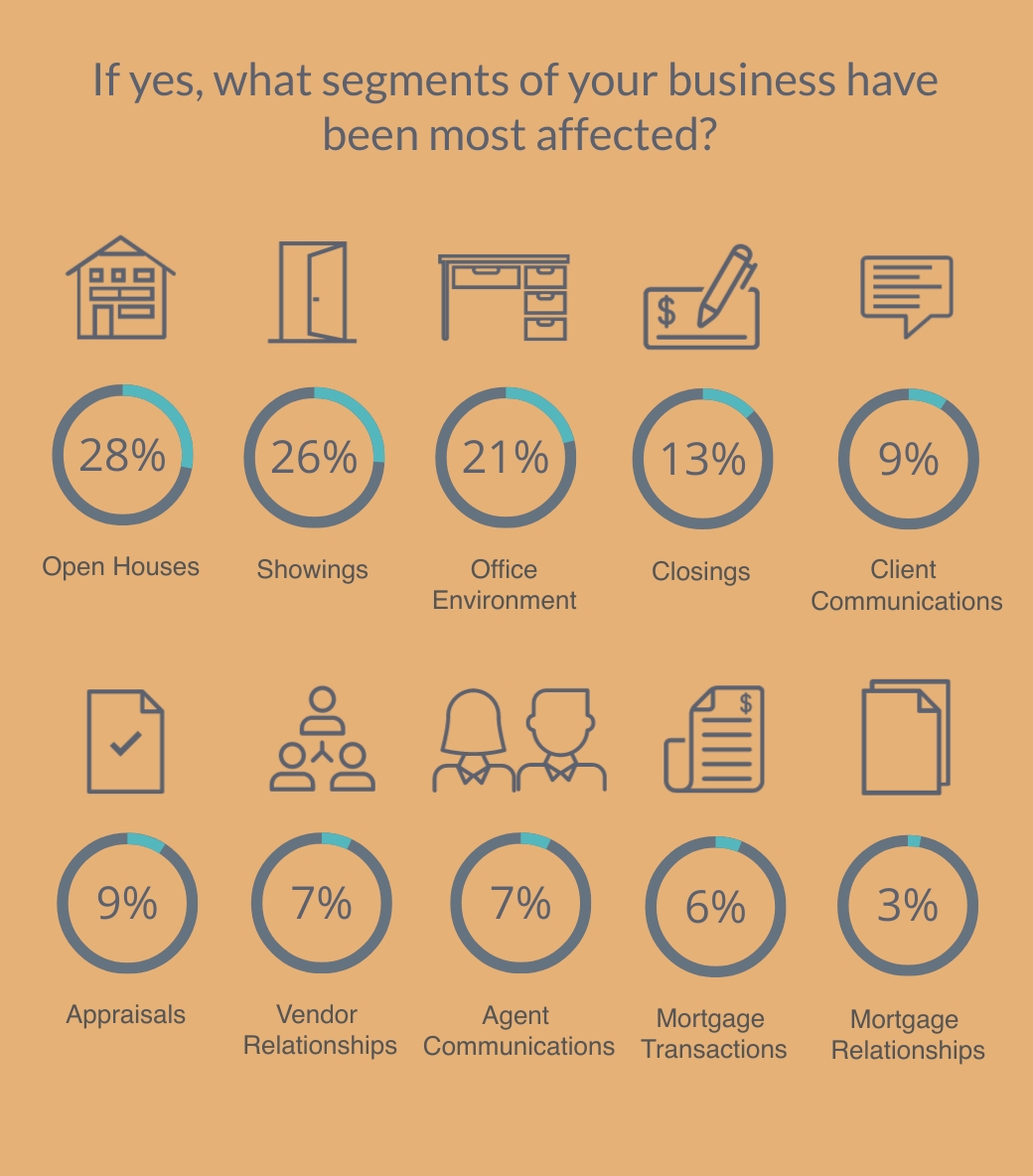
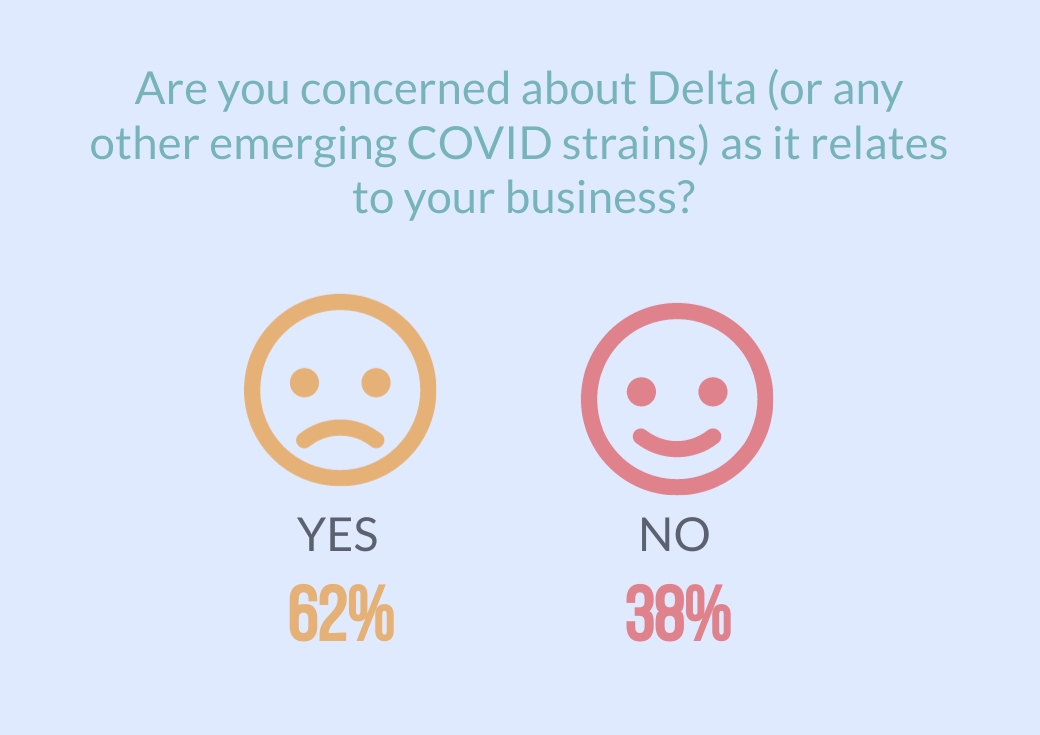
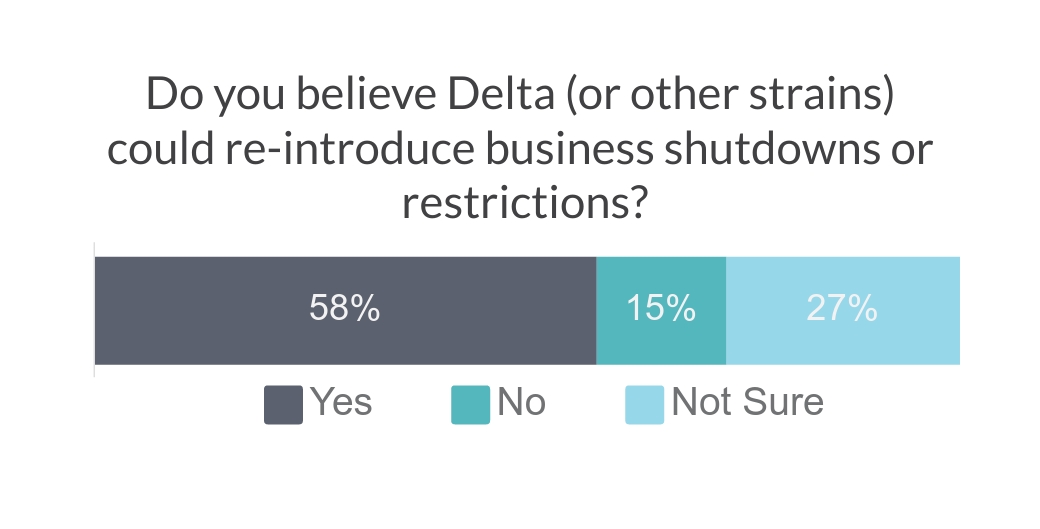
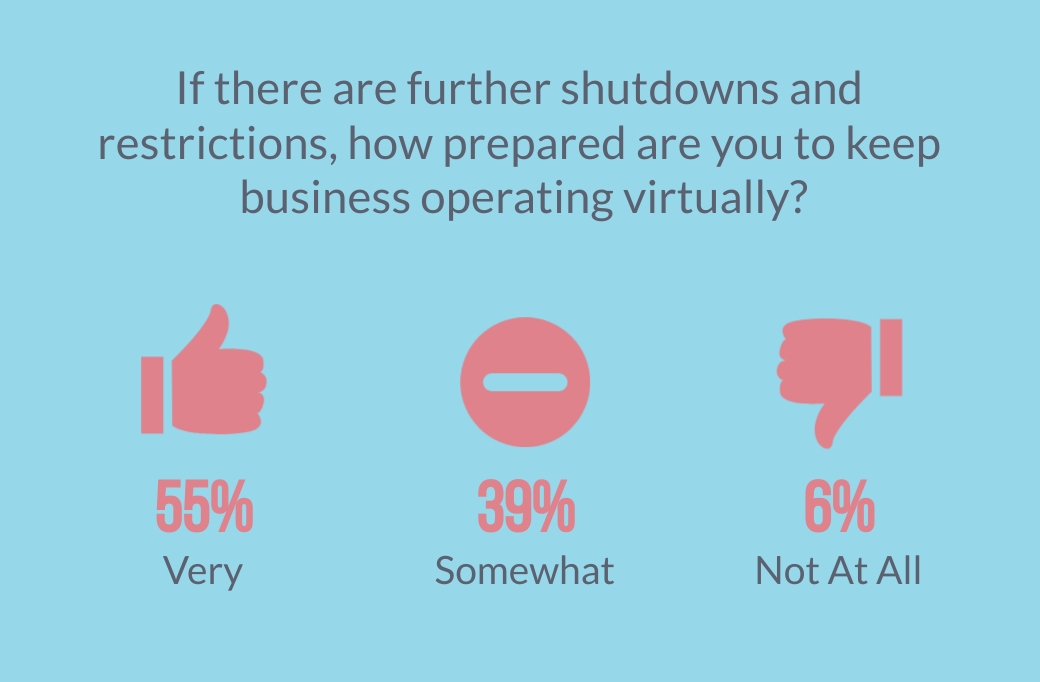
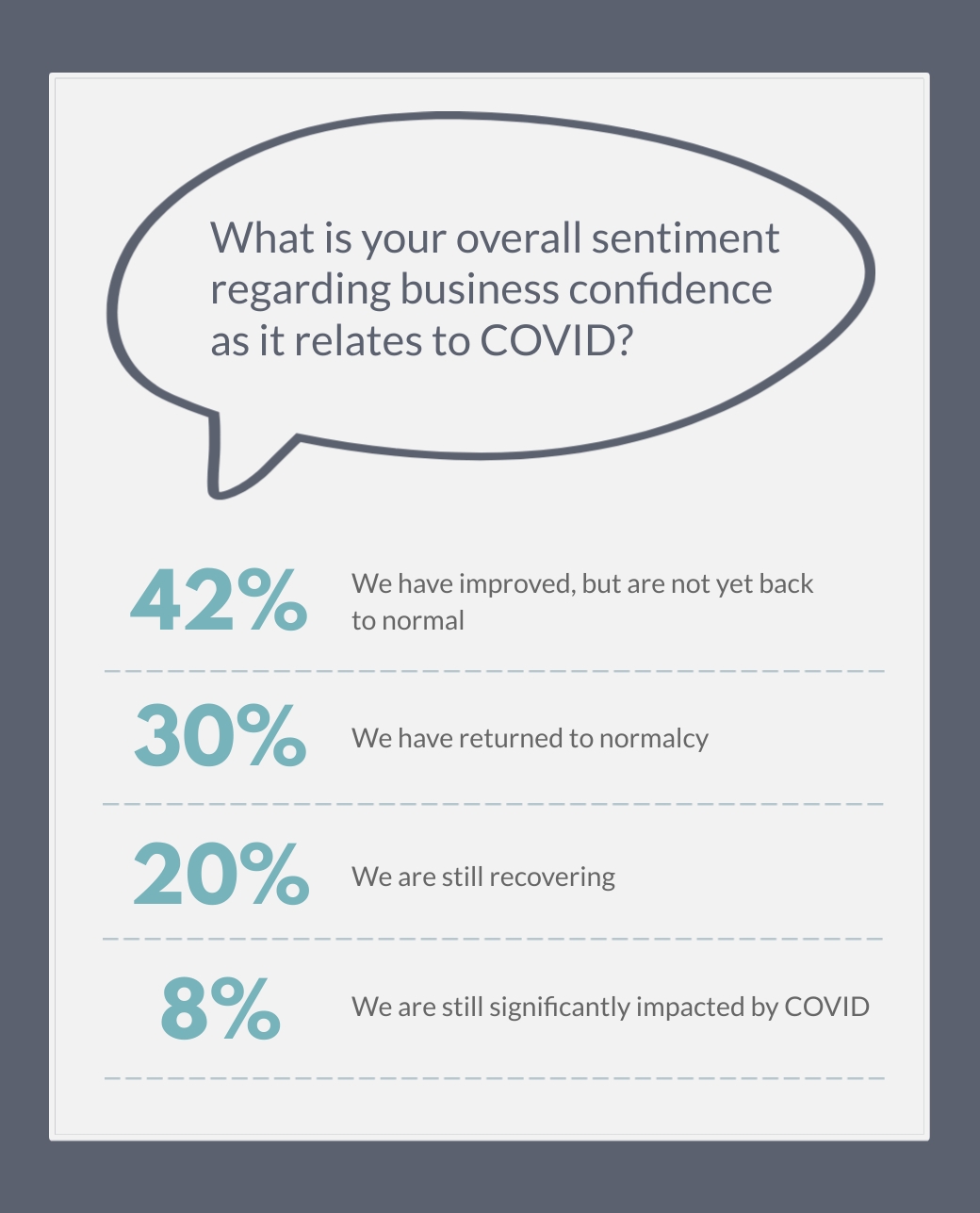

 Interested in reading about other real estate insights? Liz Dominguez is RISMedia’s senior online editor. Email her your real estate news and survey ideas to lizd@rismedia.com.
Interested in reading about other real estate insights? Liz Dominguez is RISMedia’s senior online editor. Email her your real estate news and survey ideas to lizd@rismedia.com.










